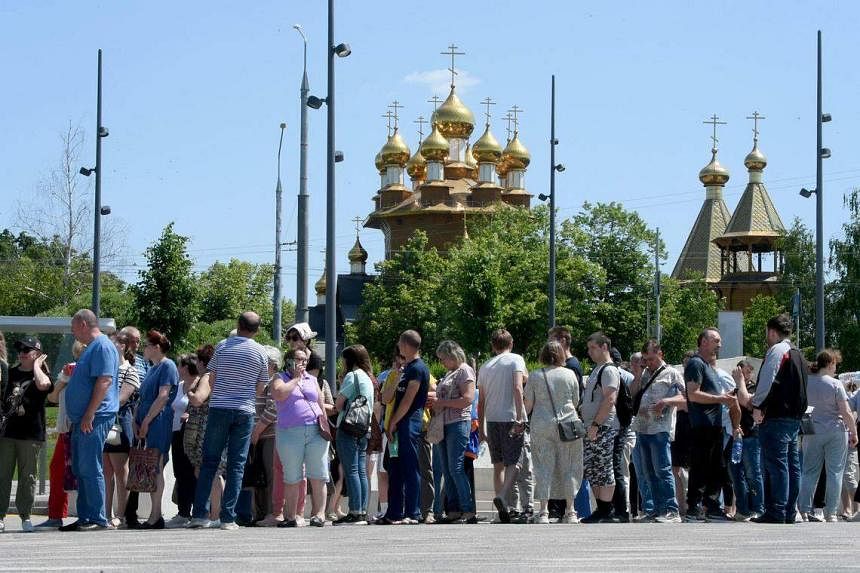
MOSCOW - Over the last five days of May, Ruslan, an English teacher in a Russian town near the Ukrainian border, heard the distinct sound of a multiple rocket launcher strike for the first time. Shelling would begin around 3am, sometimes shaking his house, and continue through the morning.
He had heard the thud of explosions in distant villages in the past, he said, and in October, shelling damaged a nearby shopping mall. But nothing like this.
“Everything changed,” he said.
Fifteen months after Russian missiles first roared toward Kyiv, Ukraine, residents of the Russian border region of Belgorod are starting to understand the horror of having war on their doorstep.
Shebekino, a town of 40,000 just 9km from the border, has effectively become a new part of the front line amid claims that Ukraine has intensified attacks inside Russia, including on residential areas near its own borders. The spate of assaults, most recently by militia groups aligned against Moscow, has sparked the largest military evacuation effort in Russia in decades.
“The town became a ghost in 24 hours,” said Ruslan, 27, who evacuated on Thursday after a sustained campaign of shelling.
In the last several days, The New York Times interviewed more than a half-dozen residents of the border region to get a sense of the deepening anxiety among Russian civilians. Like Ruslan, most insisted on being identified by only their first names, citing a fear of retribution for speaking about the war.
“Shebekino was a wonderful, flowery town on the border with Ukraine filled with happy, neighbourly people,” said Darya, 37, a local public-sector employee. “Now only pain, death and misery live in our town. There is no power, no public transport, no open businesses, no residents. Just an empty, shattered town in smoke.”
The hardship is familiar to Ukrainians, who have seen cities like Bakhmut obliterated and others ravaged by civilian casualties. So are the sleepless nights; Russian missiles targeted Kyiv at least 17 times in May. But many Russians had not expected something similar to happen on their home turf.
Explosions are audible, too, in the city of Belgorod, the regional capital 30km to the north of Shebekino, and residents there have increasingly begun seeking access to basements that can be used as bomb shelters. People who had previously tried to go about their daily business suddenly discovered they could not.
“We are at a turning point right now,” said Oleg, a businessman in the city. “When this all started,” he said, referring to the war, “the people who opposed it here were a minority. Now, after four days of being shelled, people are changing their minds.”
Belgorod’s regional governor, Vyacheslav Gladkov, said 2,500 residents had been evacuated and taken to temporary shelters in sports arenas farther from the border. Thousands more left on their own accord, residents said in interviews.
https://news.google.com/rss/articles/CBMiYWh0dHBzOi8vd3d3LnN0cmFpdHN0aW1lcy5jb20vd29ybGQvZXVyb3BlL2V2ZXJ5dGhpbmctY2hhbmdlZC10aGUtd2FyLWFycml2ZXMtb24tcnVzc2lhbnMtZG9vcnN0ZXDSAQA?oc=5
2023-06-03 20:35:20Z
2099927414
Tidak ada komentar:
Posting Komentar